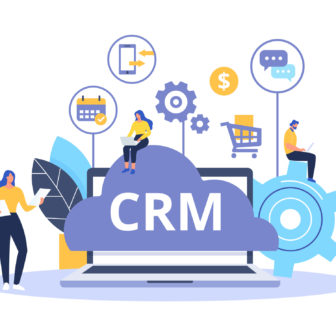
If you are considering a CRM (Customer Relationship Management) strategy for your business, you probably already know the advantages.
If you think a CRM might be just what your company needs to gain an edge over competition, and want to know more, Perxi can help!
Today, the Perxi team shares the benefits of a CRM strategy for your business, as well as the issues you need to resolve to implement yours successfully:
Defining CRM Strategy and Its Benefits

The goal of a CRM strategy is to convert each prospect or customer interaction into an asset for your brand. Your CRM strategy should operate on the premise that your finance, sales, marketing, and customer support should work hand-in-hand. Developing a successful CRM strategy can bring exceptional results that include:
- Enhanced efficiency in marketing
- Greater messaging capabilities
- Improved sales cycles
- Enhanced customer loyalty
- More accurate forecasting
- Better decision making
- Enhanced visibility for your brand
Ultimately, a well-planned CRM strategy can deliver increased profitability – lowering the cost of attracting customers and increasing customer loyalty.
When you are starting out, you want to carefully set expectations regarding the available reports and dashboards. Focus on the tangible components of your business—or more accurately, the key performance indicators (KPIs) for your company’s departments.
Determining the scope of your CRM strategy is important, as it will help you and your team successfully determine the audience groups to cover and the resources required to execute your plan. You can also track growth milestones along the way as you steadily progress toward your ultimate business goals.
It is important to realize the implementation of your CRM strategy will require up-front investment and takes time to come to fruition. You’ll need to set up a cost structure to develop your business as well as drivers from your marketing and sales areas, but also keep in mind your CRM strategy must continually evolve with your business as it grows.
Resolving Issues Before You Begin

To ensure the implementation of a successful CRM strategy, you will want to resolve these potential issues:
- Ensure your company has the ability to successfully integrate data as well as systems, ensuring your key databases are full of quality information. One way to accomplish this is to utilize a service which ensures quality data retention. Your CRM will only be as good as its data!
- Your company should have the ability to develop a disciplined long-term investment in sales, customer support, and marketing.
- The decision-making process in your company should be sound, not based on a “bid to win” mindset.
- Every department in your company must work together cohesively and not view one another as competition.
- For CRM success, your company must be large enough to be able to clearly see and achieve strategic benefits when the plan is executed properly.
- Your company shouldn’t be so large as to already have numerous CRM, marketing automation, and support systems in place; nor should it be so large that it is unable to coordinate the parts within your comprehensive CRM strategy.
- Your company must behave dynamically, able to manage the ever-evolving changes in digital marketing as well as your industry.
A Few Final Tips for a Successful CRM Strategy

With a new CRM strategy, proper training is key. Everyone in your organization involved in the strategy should know how the system works and particularly how to enter data.
Without quality data, success will be limited to non-existent. Keep in mind that everyone on your team works uniquely and will need sufficient training, whether they are new strategy enthusiasts or skeptics.
Your new CRM strategy should be clearly defined so everyone in your organization can easily understand not only the technology involved, but the overall goals your company is hoping to achieve. It needs to be specific and focused to define what processes will change, what actions must take place, and how management will track goal achievement along the way.
Everyone should understand that with a CRM strategy, the ultimate goal is to connect with customers and build stronger relationships. Remember, above all else, your entire team must understand your CRM strategy and system are way more than a simple sales tool.
